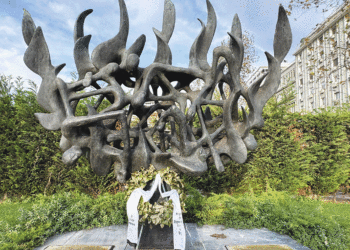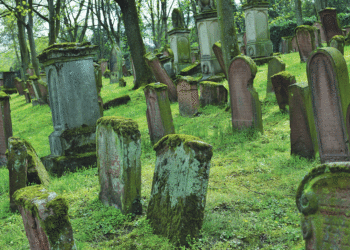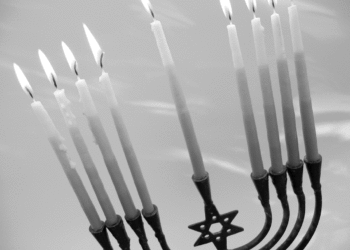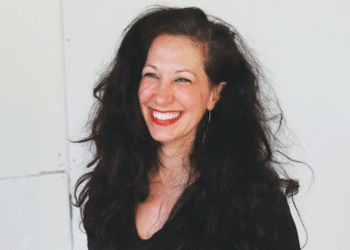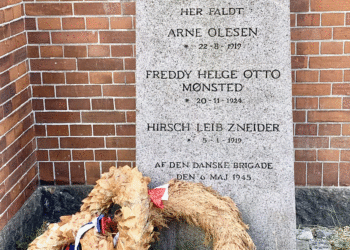By ROBIN DOROSHOW
Despite having lived west of the Mississippi for many years, I remain a St. Paul gal at heart.
Both of my parents were born in St. Paul to immigrants from Eastern Europe. After immigrating early in the 20th century, all four of my grandparents and four of my great-grandparents lived the remainder of their lives in the capital city.
Recently I attended the annual fundraiser of a St. Paul institution, Neighborhood House, a wonderful community resource that serves immigrants, refugees, and low-income individuals and families on the West Side of St. Paul.
I have always had an interest in the West Side community and its history, as my father was born and raised there. I remember hearing stories about Neighborhood House and how it served my father’s family and the entire community.
Neighborhood House was founded in 1897, by the women of Mount Zion Temple — and its largely German Jewish membership — to assist with the settlement of Eastern European Jews, many of whom arrived with few resources. Neighborhood House assisted these immigrants in adapting to a very different life than they had known in the old country.
Currently housed in the Paul and Sheila Wellstone Center for Community Building, Neighborhood House serves different populations today than it did a century ago. And it’s appropriately named for Wellstone, a Jew who was passionate about matters of social justice before he lost his life in a plane crash a decade ago, along with his wife and daughter, and others.
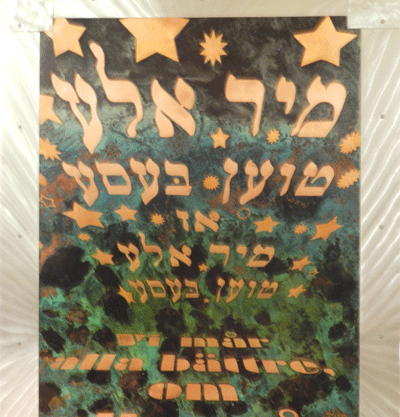
Paul Wellstone’s quote, “We all do better when we all do better,” in Yiddish, one of 11 languages in which it is written in the main hall of Neighborhood House’s Paul and Sheila Wellstone Center for Community Building. (Photo: Robin Doroshow)
Wellstone reportedly once commented that he wasn’t a very “good” Jew, as he had intermarried and hadn’t raised his children as Jews, nor was he involved in the organized Jewish community. Through the lens of time, it is apparent that he was truly the best kind of Jew, with a very deep commitment to tikkun olam, repairing our broken world.
There could be no more fitting way to memorialize the Wellstones than to put their names on this institution that has as its mission assisting its clients in breaking the cycle of poverty through its four main programs: basic needs, youth leadership, adult and family education, and community building.
Neighborhood House is located at 179 Robie Street, just down the block from my paternal great-grandparents’ home, which was also the home where my paternal grandparents raised their family. It is possible to imagine what life was like in this ethnic enclave a century ago when it was home to predominately poor Jewish and Mexican immigrants. Neighborhood House served the needs of the community then, and it continues to serve the needs of diverse populations today.
Over the years, the West Side has been a point of departure for numerous ethnic communities, including Polish, Syrian, Lebanese, Italian, Vietnamese, Laotian, Thai and Myanmarese immigrants. Now the community Neighborhood House serves is largely Latino, Hmong and Somali.
True to its Jewish and Latino roots, the Neighborhood House board of directors is chaired by Eric Levinson, a Woodbury resident who works as an intellectual property attorney and plays bassoon in a community orchestra. Armando Camacho, a Puerto Rican immigrant who was raised by his grandparents on the West Side, serves as president. Camacho transcended the poverty of his youth and became a teacher, and subsequently a school principal with credentials to serve as a school superintendent.
One of the live auction items at the annual fundraiser was a Puerto Rican dinner for eight people hosted by chef Camacho and his grandmother. This item quickly went from an opening bid of $500 into the thousands of dollars. A bidding war escalated, with the price approaching $6,000, and the talented auctioneer easily convinced the two final bidders to each pay $6,000 for two separate Puerto Rican dinners, which Armando happily agreed to host.
It was clear that while the community was eager to taste the cooking of Camacho and his grandmother, the greater motivator was love for this institution, its mission, its leadership and its future.
My son, Theo, and I volunteered at the Neighborhood House food shelf one day last year on a school release day. We helped to restock with ethnically appropriate foods and, thanks to Trader Joe’s, many fresh fruits and vegetables. Theo and I also had the opportunity that day to deliver supplemental food packages to residents of the low-income senior housing building located next door to the Wellstone Center.
An elderly woman who resided there invited us into her immaculate small living room, and gave us a chocolate bar in appreciation. She told us that she had grown up on the West Side, the child of Lebanese immigrants. It was meaningful for me to volunteer with my son that day in a place that was literally a stone’s throw from where my father, for whom my son is named, grew up.
While my husband and I were not the only Jews in attendance at the fundraiser, and perhaps a minyan could have been gathered, Jews were not represented in great numbers that evening. I wondered how many in our community are aware of the genesis of Neighborhood House more than a century ago.
Since the first Jews arrived in St. Paul in 1856, two years before Minnesota was admitted as the 32nd state of the union, there has been a Jewish presence in Minnesota. Established to serve people like my great-grandparents, grandparents and their families, Neighborhood House has served immigrants and those in need for 115 years.
My family is committed to volunteering and supporting Neighborhood House, and we benefit at least as much from the experience as those we serve. To receive monthly e-mails about volunteer opportunities for you and your families, please contact Riley Karbon at Neighborhood House at: rkarbon@neighb.org or 651-789-3626.
Paul Wellstone is known for the quote, “We all do better when we all do better.” In the main hall of the Wellstone Center this quote appears in 11 languages. In the middle of the hall, this quote is found written in Yiddish (Hebrew characters).
(American Jewish World, 12.21.12)










